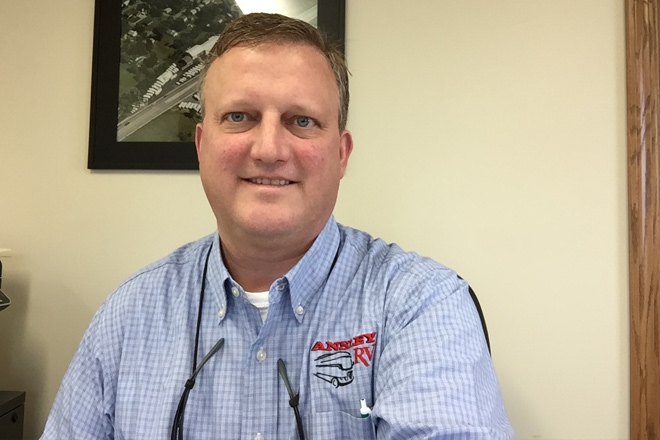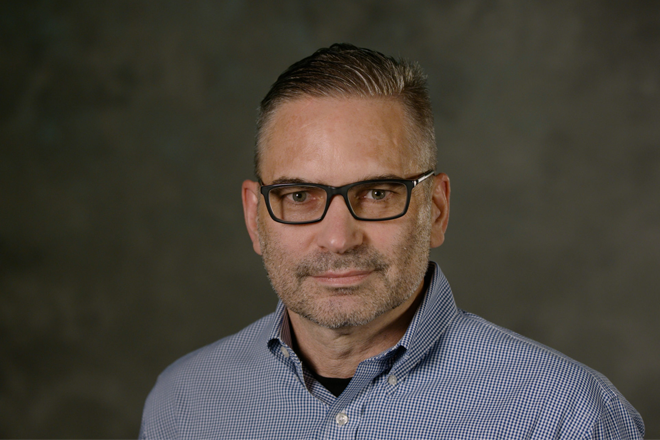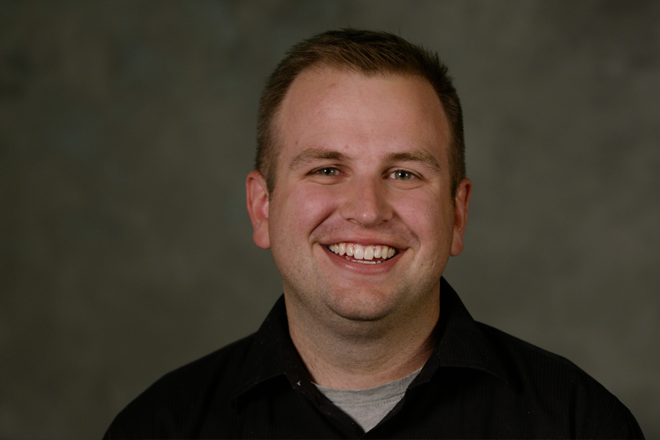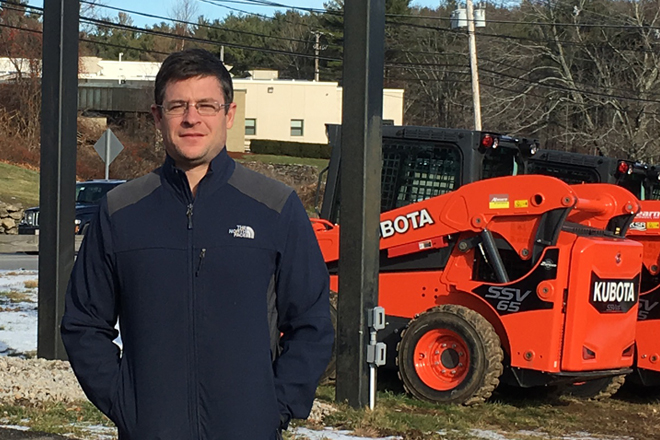How did you start your relationship with Spader?
Bill Ansley: My family got into the RV business in the early ‘70s. My grandfather was an RVer and my family came from the used car business. We had the largest used car operation in central Pennsylvania in the ‘60s and ‘70s. My grandfather, he had an Airstream and the wind got him and it scared him, so he bought a motor home. When he called the factory to find out where the nearest dealer was he ended up buying three of them and he gave the other two to my dad and said, “Here, sell these. I’m going camping.” My grandfather came home and he was like, “Hey, how’s number two and number three doing? It don’t look like they’re doing too good.” My dad said, “That’s number five and number six.” He was replacing them.
My dad’s buddies who were in the business said to him, “Hey, there’s a group that we’re involved with that might help you look at the RV business better than, say, the used car business.” That was Spader and my dad went to his first Spader meeting in 1987 and my younger brother went with him. It was interesting, they were there and they submitted all their numbers and the guys were pretty rough on them right out of the chute. My dad said, “Well, I looked at my Rolex that was paid for and I said, ‘I don’t know if I have time for this.’ I went out in the parking lot and got in my Cadillac that was paid for and I drove home.”
The buddies that got him into the group, they actually came and visited him and said, “Look, this is a good thing that you’re learning from these guys. You need to stick with it,” and my dad stuck with it and he become a real advocate. Now, that was when Duane [Spader] was facilitating the meetings that he was going to. It become such a part of my dad’s life that when my brother and I got old enough to think about not just coming into the business, but taking over the business or purchasing it from my dad he insisted that we attend the Spader meetings just so we were all on the same page. “I don’t really care how you count the beans as long as you’re all on the same page and you know where you stand.”
Have you continued to send your team to Spader training?
BA: My service people are in service 20 Groups. We’ve been in and out of that a couple of times. What happens with the service side of it is that you service managers and parts managers and they’re not necessarily the owners and so it’s good for them to go and rub elbows with somebody that’s not an owner, because some of the owners will spin it the way they want to spin it. It helps the service people get the perspective from other people that are in their position.
Are there particular ideas that have come out of a 20 Group meeting that made a big impact?
BA: Right now, we’re in the process of potentially changing our whole sales force pay structure. It’s a new concept and it is not old school at all. We’re looking at maybe pulling everybody together and they all work together as a team, which everybody preaches team, but the pay scales don’t preach team. We’re going to change the pay scale to that and it’s going to be a huge step. We haven’t done it yet. We’re in the process. We’ve got to add some new people. That’s one of the things. Boy, we had to adjust our insurance expense and do it in a manner that was fair and equitable to everybody without creating a mutiny. I actually used a combination of what two or three other guys in the 20 Group had done that fit our business better. That was a no-brainer. Anyway, there’s many, many things.
How do you build trust amongst your peers to the point where you are comfortable taking their advice?
BA: You watch it. That’s the thing, that’s the nice thing about the 20 Group is that you’re looking at all the numbers. You’re looking at their service number. You’re looking at their warranty repair numbers. You’re looking at their productivity. You’re looking at all their efficiencies. You’re looking at their personnel expenses. You’re looking at their advertising expenses. You’re looking at their sales volume. You’re looking at everything. You can just, boom, put your finger right on it. If it’s working for them, you see whether it’s working for them or not. You can sit at a meeting and say, “This is what you ought to do,” but you know how many people say, “This is what you ought to do,” and they don’t do it themselves? A lot.
How did you find your place in 20 Group after taking over for your father?
BA: When we transitioned to myself being the lead at the 20 Group meetings I was in my dad’s old group. He was at such a comfort level in that group and he liked them all and they were his dear, dear friends. When I started going to the meetings as the primary it wasn’t my group. I said to my dad, “I’d like to switch groups. Not that I don’t like any of these people. It’s just that there’s a dynamic, but that dynamic involves you, not me.”
We went to Spader and said, “Hey, we’d like to switch groups.” My dad had pretty good feel. He knew so many people. He knew where he wanted us to be and who he wanted to compare us to. There wasn’t an opening in that group at the time, so we sat it out for almost a year until there was an opening in that group. Then that group was gracious enough to accept us into the group and we haven’t looked back. There’s actually been change in the group since then, too. Even if you’re already in the group, you can find a different dynamic if you want to switch to a different Spader group to get something different out of it than you’re getting. It’s still a group of your peers.
What do you find can be most challenging about the RV industry and how has your relationship with Spader helped those areas?
BA: The nice thing about most of the 20 Groups is you’re not in the same geographic area. You meet two, three, four times a year depending on what your group does and you compare what’s hot and what’s not in your market or what trends they’ve seen and you’re going to say, “Boy, we haven’t seen that trend at all.” Guess what, that might be coming your way, or we’d say, “Oh, we’ve already seen that trend. We’ve got that one covered.” It always can open your eyes.
I take running notes at every meeting of not everything that’s said, but just things that jump out at me and run through it with my managers when I get back, “Hey, this is what’s hot in California,” or, “This is the trend: this manufacturer, all the sudden they’re not paying warranty like they used to. This manufacturer has had “x” amount of recalls on their sidewalls.” There is just so many different facets that you can take note of and be aware of. When you call a manufacturer and say, “Hey, I’ve got a crack in the sidewall underneath the slide of this fifth-wheel ‘x,’” they say, “Oh, we’ve never heard of that before.” When you’re sitting in a room with 20 of your peers and seven of them have had that same problem, you know right where you stand.
Is there any advice you received from a facilitator that sticks with you?
BA: When I was younger, we had 50 new motor homes in stock. Duane was our facilitator at the time and he was talking about our inventory and I said, “Duane, we’ve got 50 of them and we’re selling them and we’re making money.” He said, “You’re not selling enough of them, but you are making money.” I said, “Well, what’s wrong with that?” He said to me, “How old are you?” I said, “I’m 32.” He said, “Well, that’s young enough.” I said, “What are you talking about, Duane?” He said, “That’s young enough that you can go broke and probably still come back and save enough for retirement.” I’ve always remembered it and guess what? There are 29 new motor homes sitting out there and we probably won’t ever have any more.
How have you utilized Spader’s training on the human side of the business?
BA: I’ve sent my managers to their [training]. I’ve got two new managers that are going. One of the biggest things I got out of the whole [Total Management 1] workshop was the personality profiles. I actually personality-profiled everybody in the dealership to make sure they were the round peg in the round hole and I was very pleasantly surprised that they were. Now, we did it all the way from top to bottom, because we wanted to treat everybody as a team. You don’t need to go top to bottom, although it certainly couldn’t hurt. Your key people, you should probably personality profile them. It’s very important who you have behind the parts counter, who you have behind the service counter. Those are two different personalities, sale manager, salesman, every position.
The human side is huge and once you learn to identify that person who’s standing across the desk from you, as long as you’ve got the right personality behind the desk, you’re going to have success. That has nothing to do with counting the numbers, but it’s sure important in your potential for success.
What would you say to an owner who’s considering seeking outside help from someone like Spader?
BA: If their managers aren’t all on the same page, the easiest way to get them all on the same page is to put all the numbers in the book and let Spader break them down how they break them down and then you’re all on the same page. You’ve got to identify efficiency. You’ve got to identify productivity. You’ve got to identify how you want to calculate whatever percentage a profit is. There’s three or four or five different ways to do that if you really want to look at it hard. It seems simple but it’s not. Getting everybody on your team on the same page is critical to start with and then you can fix the problems.
Can businesses who are already doing well benefit from training with Spader?
BA: Absolutely. I’m comfortable with where I stand in the scope of things. We compare ourselves to all the people in the Spader groups. They provide all that information, you get the specifics on the people who are in your group, but you can get the overall picture from them as well. You know whether you’re in the top 10 percent of the dealers in the country, the top 20 percent of the dealers in the country or the bottom 10 or 20 percent. Just being in the bottom 10 percent of Spader people is probably better than 50 percent of the dealers in the country. There are 110 different ways to measure, but I guarantee you that if you’re involved with the Spader company, your ranking is going to be higher than if you’re not.







